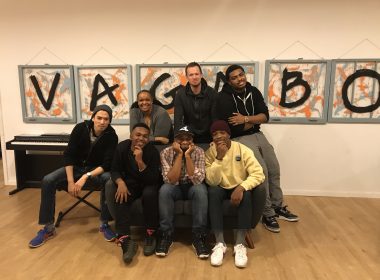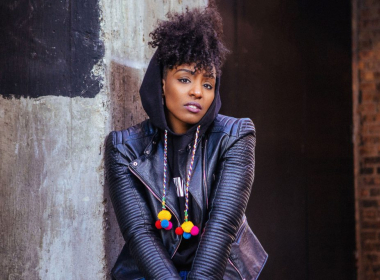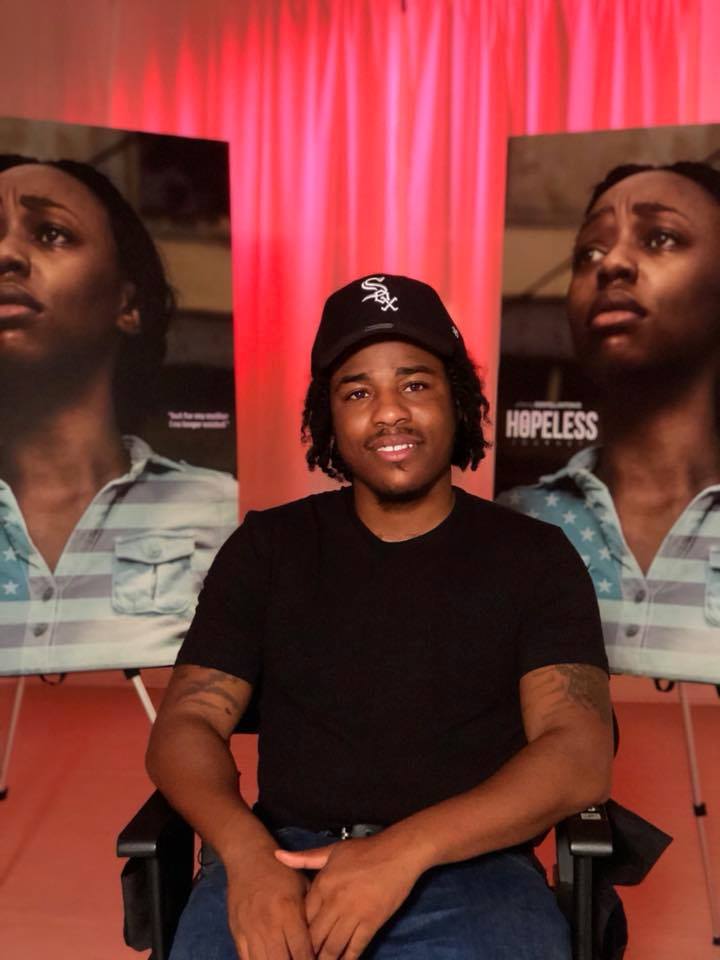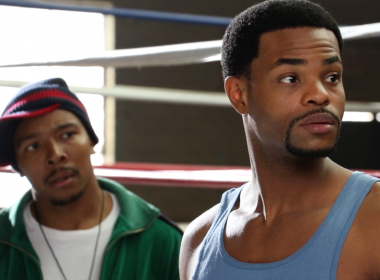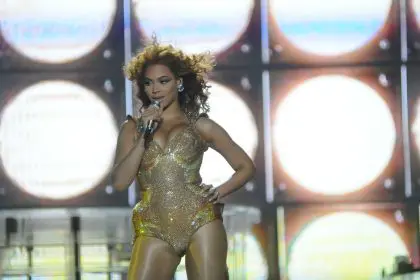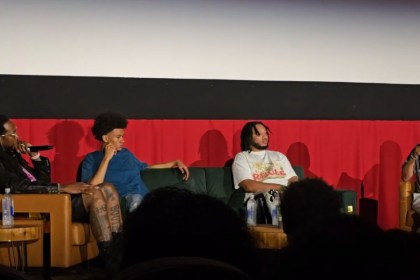
Paradigm Grey is opening up a door to Black cinema and providing a different perspective from the norm. The most recent releases of The Birth of a Nation and Boo! A Madea Halloween — two very different movies — offer a sampling of the narrative Hollywood wishes to present to the world on behalf of Black people. This is not a knock on either of these films. This is speaking to the limited scope of vision that is being shared with the public. Paradigm Grey is providing a more diverse view of the Black experience. Black people like sci-fi and thrillers too. We spoke with a few members of the collective about how they’re bringing a different perspective to the screen and the challenges they face as Black filmmakers.
Describe your collective.
Jonathan Woods: It is a collective of the various directors, creator and storytellers of color who usually don’t have the opportunity to tell the type of story that we are telling. We use films that show us in different types of situations. These situations may happen in the future, they may be situations that question reality or our perception of reality. Commonly these genres may be thought of as speculative fiction. There is a strong tradition of African Americans involved in this type of filmmaking but as far as science fiction and horror, not so much. The films we are creating are seen from a Black perspective. It adds additional levels of nuance and storytelling. All of us are professionals at what we do and have been involved in filmmaking for many years. The advances in technology make it easier for us to create the types of films we are creating at a small cost.
Chris Adams: This collective came out of the frustration of seeing a lot of wack independent films following trends. If you see a Tyler Perry film you would see 20 rip offs of that, if you have Boyz N the Hood there is Boyz N the Hood part 10. There is so much more to the African American experience. Then also the frustration of when you do go to the sci-fi or horror films you know the Black character is not making it to the end of the movie or they are used to reinforce stereotypes. This collective is an opportunity to shift the paradigm, shift the dynamic so that we are the heroes and we are able to take control of our own stories and images. We have a lot of negative imagery to counter. We also want to do some things that are inspirational. When I was growing up we had Star Wars even though many times they didn’t have people that looked like me it always made me wonder how come it was that way. We can be Han Solo, we can be Luke Skywalker.
JW: The show Black Mirror really inspired us. It’s some of the best writing that any of us have ever seen. All of us are really big fans of that show. When we got together and would talk about that show and how good it was we were like we could probably write some things on that level.
What are your thoughts on the representation of Black filmmakers?
David Johnson: Much like hip-hop there is huge frustration right now with people my age who grew up on old-school hip-hop who are now listening to trap and mumble rap. There is a place for both of them. It’s the same thing with filmmaking right now. We completely understand that there is a place for relationship movies or your Tyler Perry type movies. There is not a full representation of the Black experience. There is not a full representation of what Black filmmakers are interested in. Everybody that I know loves sci-fi, they love a thriller, they love horror. But, on a global level when you start thinking about the movies that we put out there that portray us, you have to understand that our movies and our music are the only way that people on the other side of the planet have any representation of us. If there is an only one type of movie coming out they think that’s the only type of Black people that exist. This is why our collective is different. We are looking to show that Black people love all different types of movies. We like a good horror movie where we are not dead in the first five minutes. We want a different representation for us.
Harold Dennis: I think there are many African Americans who are into sci-fi and African American filmmakers who are making sci-fi and who are just not being seen. We have come together and put ourselves into a position to get this global exposure as sci-fi filmmakers and actors. The way I see it Paradigm Grey is the sci-fi channel meeting the “Twilight Zone,” with a little bit of horror.
Daren DeShazer: I’m a filmmaker that just happens to be Black. What I like about Paradigm is that we push each other, we feed off of each other. This group makes us raise our level of creativity. That’s what I love about Paradigm we not only want to set the example, we want to break the mold. We are setting trends ;we are building something.
What is Paradigm Grey and when can we see the finished product?
CA: Paradigm Grey is an anthology. It’s composed of several stories. The stories vary in length from three minutes to 20 or 30 minutes. We are in various stages of completion. We are pushing for a November completion and there are people who are interested in distributing which is great. We have a trailer online for everyone to see.
We have spoken about the Black voice in cinema, How important do you think the woman’s voice is to paradigm group.
Nicole Reed: I think it’s extremely important. There are so many roles where you get the woman playing the love interest or just being in one of those roles where you just kiss the guy and be happy about it. To be able to see strong women characters who are actually someone you can emulate or have your children emulate I think is awesome.
Coco Elysses: I think it’s very important also I’m in Blood Lines that was co-written and directed by Dave and Carla Stillwell. The character wasn’t something I was accustomed to doing. It was very organic how the process came about. The writers were fascinated about the relationship that women have with their daughters. The young lady that plays my daughter in the film is actually adopted and we had a spiritual connection. This type of voice is important to film.
I was watching an interview with an actor and he mentioned that he would have to go to a specific place in himself when he would portray different characters. How are you able to do this in the Sci-Fi genre, do you find it hard?
Ted Crowder: I’m not an actor, but I would like to speak to that. The way we wrote our film is that we were aware that we had to leave space for the actor. We respect the art of acting. Sometimes the actor brings an aspect to the film that we would not have visualized before. We let them have their freedom to use this as an opportunity to use their craft.
What are some of the challenges of being a Black writer and filmmaker?
DJ: To me, the biggest challenge is the opportunity to market and sell diverse Black media. Some stories are simple to sell, such as hood dramas, bawdy weed comedies, or relationship film, but distributors don’t seem as interested in sci-fi, horror, or psychological thrillers with a majority Black cast. In those instances, stories are often recast with White actors because it is believed that the story, and the potential financial windfall, would suffer if it were cast with predominately Black actor so as artists, particularly Black artists, we are often faced with having to tell more marketable stories for financial reasons instead of telling more interesting, and diverse stories, in genres that don’t often see portrayed by Black people.
CA: I’ve found the biggest challenges as a Black filmmaker that I’ve personally come across several times especially from my own people is this overwhelming disbelief that the work I’ve shown people is “My work” it goes back to some of the self-hatred which dates back to the infamous Willie Lynch letter where distrust is stronger than trust and envy stronger than adulation, respect or admiration these and many more of the parameters from the Willie Lynch letter have planted themselves so deep in our collective psyche that we can’t see ourselves as capable of such dynamic work. I am constantly asked when showing my work “Ok, who did this?” But when my White counterparts show their work everyone assumes it’s theirs with no hesitation.
What advice do you give those looking to get into film?
CA: My advice to anyone getting into film is to study and practice as if your life depends on it. and not just school … I’ve found most schools are behind on the many technology advances happening today. By the time they’ve gotten a hold of some new tech it’s already outdated. There are way more resources available for free online to learn a variety of techniques about all aspects of filmmaking than I ever had over a decade ago. So when I meet young lazy filmmakers I have no patience because a lot of them will not put the time in to learn their craft. Get a camera and shoot as much as you can! If all you have is a cellphone shoot with that! Don’t get caught up in chasing the tools, use what you have and master it! Try and recreate a scene from a movie, try and match the lighting and composition. Doing this over and over you will begin to understand the process and keep getting better.
Learn more about the Paradigm Grey series https://www.paradigmgrey.com/. Take a look at a few candid shots below.










